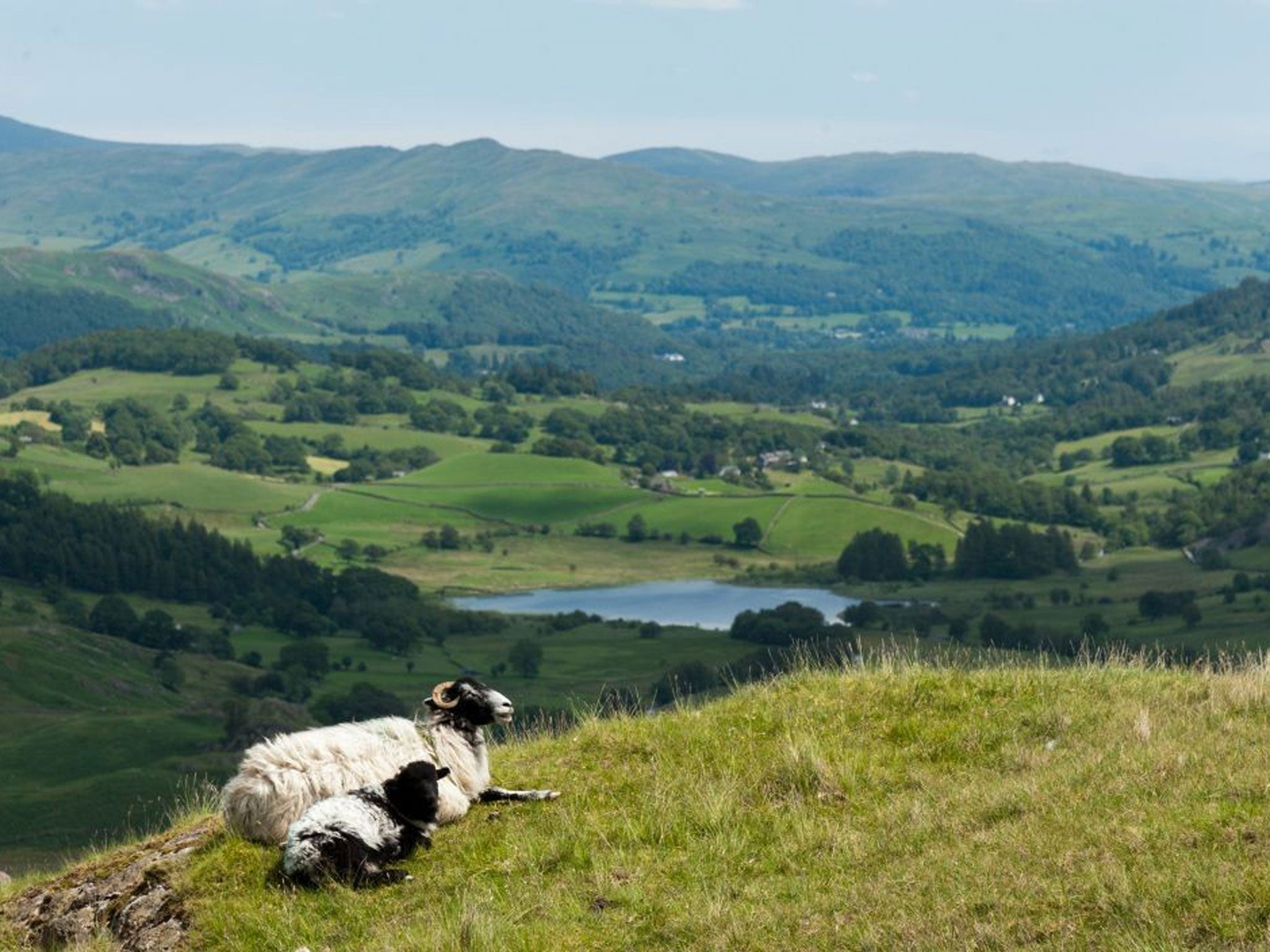Like a lamb to the slaughter: Environmentalist attacks 'ecological disaster' of sheep-rearing at hill farmers' meeting – and is met with stony silence
George Monbiot wants 'a change in incentives to encourage wildlife and allow biodiversity to recover'

Your support helps us to tell the story
From reproductive rights to climate change to Big Tech, The Independent is on the ground when the story is developing. Whether it's investigating the financials of Elon Musk's pro-Trump PAC or producing our latest documentary, 'The A Word', which shines a light on the American women fighting for reproductive rights, we know how important it is to parse out the facts from the messaging.
At such a critical moment in US history, we need reporters on the ground. Your donation allows us to keep sending journalists to speak to both sides of the story.
The Independent is trusted by Americans across the entire political spectrum. And unlike many other quality news outlets, we choose not to lock Americans out of our reporting and analysis with paywalls. We believe quality journalism should be available to everyone, paid for by those who can afford it.
Your support makes all the difference.Its stark beauty may have inspired romantic poets Wordsworth and Coleridge, but for environmentalist George Monbiot, the Lake District has been turned by centuries of sheep-farming into something akin to a "chemical desert".
And so the controversial environmentalist could be forgiven for feeling a bit like Daniel in the lion's den as he took his message of "rewilding" the countryside to a hostile audience of about 100 stony-faced Cumbrian hill farmers.
In his most recent book, Feral: Searching for Enchantment on the Frontiers of Rewilding, Mr Monbiot attacked sheep farming as "a slow-burning ecological disaster which has done more damage to the living systems of this country than either climate change or industrial pollution".
He has also described the Lakes as "one of the most depressing landscapes in Europe", arguing its "celebrated fells have been thoroughly sheepwrecked" and that there is "more wildlife in Birmingham".
It didn't go down too well at the annual meeting of the Federation of Cumbria Commoners, held at Newton Rigg agricultural college near Penrith on Friday.
The chair of the meeting, Dave Smith, who keeps sheep at Dufton, near Appleby, gave Mr Monbiot a "cordial welcome", but the packed hall greeted him with complete silence, rather than the customary polite applause.
The silence continued as Mr Monbiot tried to explain his theories, punctuated by the odd shout of "Rubbish!" and "S***!" when the debate became heated.
He said he was not advocating forcing people off the hills to rewild, or return the hills to something more like their natural state. "I would like to see a change in incentives to encourage wildlife and allow biodiversity to recover," he said.
He went on to describe Britain's uplands as an ecological disaster area and an extraordinarily barren environment, comparing the effect of sheep in the UK to cattle farming in the Amazon.
Britain's ancient woodlands were once widespread but today there was a "fetishist" desire to protect habitats like grasslands and heather moorland, which were devoid of natural species, he said. The lack of trees in the uplands, Mr Monbiot argued, had also contributed to flooding in lowlands, as seen this winter.
This point was too much for Will Benson, a Young Commoner. "Surely it is rain that causes floods, not sheep?" he interjected.
Mr Benson insisted uplands were far richer in wildlife than arable farms and also accused Mr Monbiot of "being provocative to sell your books", a suggestion that caused the writer to lose his temper.
And Will Rawling, chairman of the Herdwick Sheep Breeders Association, said the landscape had evolved as a working environment, producing self-replacing flocks of sheep that produced high-quality protein from low-quality grazing.
After the meeting, Mr Rawling said: "It was interesting the way he slightly modified his views. He sounded more reasonable than he does in his writings."
Mr Monbiot admitted he had found the experience nerve-racking. "I am not sure I have persuaded anyone of my views. I didn't really expect to. But it is possible we understand each other a bit more."
Join our commenting forum
Join thought-provoking conversations, follow other Independent readers and see their replies
Comments